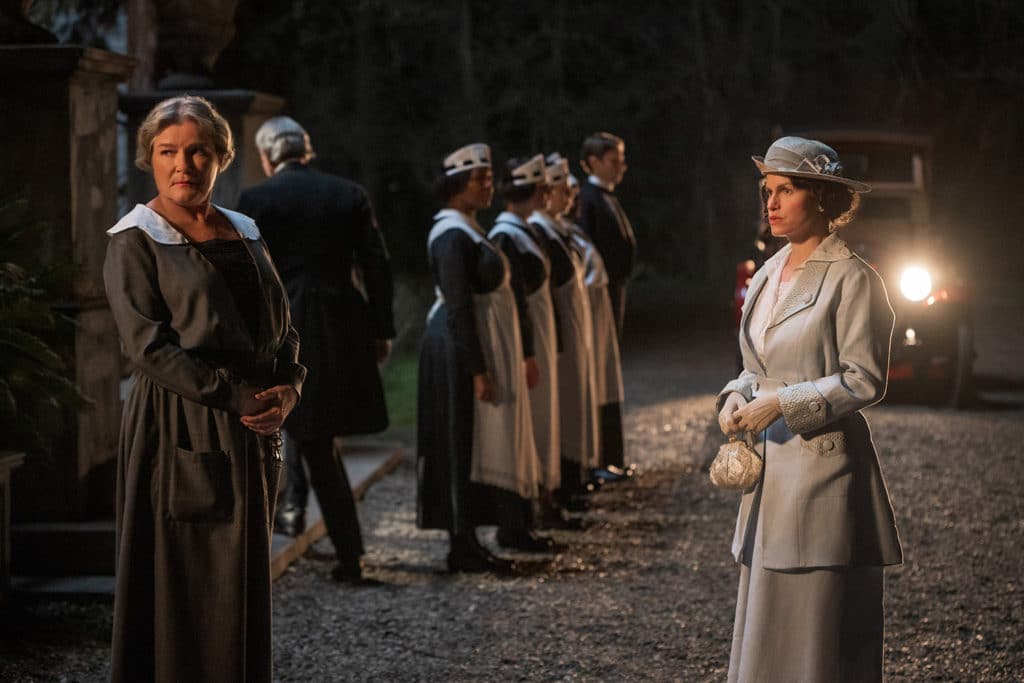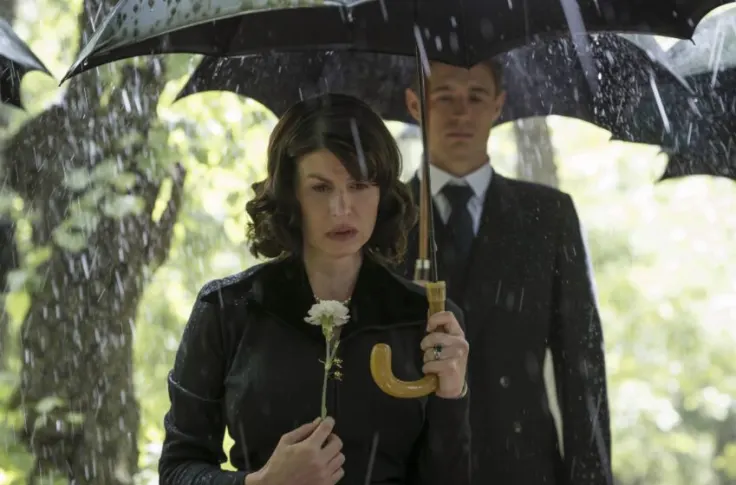Read also:
How to Watch FX Live Without CableHow To Watch AMC Without CableHow to Watch ABC Without CableHow to Watch Paramount Network Without CableA shaky start leads to high melodrama in this prequel to the Dollanganger Saga.
A note: This movie contains several scenes of sexual assault, which, though not graphic, are intense and should be handled with caution.
In 1979, Virginia Andrews, under her pen name V.C. Andrews, published Flowers in the Attic, a pulpy Gothic bestseller about four siblings locked inside the titular attic by their mother and grandmother, hidden from the world because of the sins of their parents. Three sequels followed, and, in 1987, a prequel, Garden of Shadows, told the story of Olivia Foxworth, the evil Grandmother from the first two novels.
Like all prequels, it’s a bit of a mixed bag, though it does give the series one of its biggest twists. Starting in 2014, Lifetime began making television movies of the Dollanganger series (as well as Andrews’ Casteel and Landry series and the standalone My Sweet Audrina), continuing that tradition with a four-episode adaptation of Garden of Shadows, titled Flowers in the Attic: The Origin (this review will cover the pilot episode “Part One: The Marriage”).
Directed by Declan O’Dwyer and written by Paul Sciarrotta, “The Marriage” suffers early on from being the relatively staid beginning to a story that doesn’t start taking off (as much as it ever does) until it’s nearly over. The audience waits so long for the wild shoe to drop that it’s easy to imagine some viewers never making an effort. Plucky businesswoman Olivia Winfield (Jemima Rooper, who is carrying this entire production on her shoulders), works with her father (Harry Hamlin), bucking the tradition of the time (1919), and has resigned herself to a life without romance.

A business dinner with handsome Southern mine owner Malcolm Foxworth (Max Irons) leads to a whirlwind romance and marriage, even after Olivia discovers that Malcolm lied about his mother Corrine’s death. She didn’t die when he was 5 as he’d told Olivia, but instead left him and his father at that point, dying relatively recently. This is just the first of innumerable times that Malcolm’s relationship with his mother will loom over their marriage.
After their wedding, Olivia moves to Virginia with Malcolm, where his affection turns cold and it becomes clear that he married Olivia not out of love, but to have someone to run his estate (Foxworth Hall) and bear him some children, namely a daughter that he can name Corrine (uh oh). There’s some inevitable tension with housekeeper Mrs. Steiner (Kate Mulgrew) that owes more to Rebecca than it does Garden of Shadows and after Olivia breaks house rules by going upstairs to investigate the attic, Malcolm begins assaulting her nightly—in his mother’s enshrined bed.
This sequence is one of two in “The Marriage” that are startling in their violence. When I say sequence, I mean it: there is a literal montage of Malcolm sexually assaulting Olivia, followed by a halfhearted voiceover by Olivia that boils down to “It was 1919, what could I do?” Which is, yes, unfortunately accurate, but puts an oddly victim-blaming cadence on a story that is already using rape to tell us “See, this villain has a tragic past!” Female characters’ tragic pasts almost always involve rape, and it was lazy when it appeared in the novel and it remains lazy here.
The return of Malcolm’s father Garland (Kelsey Grammer, having an absolute blast), along with the surprise addition of his much-younger new wife Alicia (Alana Boden), throws a new series of challenges into Olivia’s path, ones that culminate in the episode’s completely melodramatic end sequence. I won’t spoil a thing, but there is both lightning and opera music in the background. This is what we’re here for, but it’s hard to tell if it comes too late to have captured its audience.

Visually, The Origin is lovely, if a little basic in places–hallways are dark, skirts are long, it’s 1919 and we all know what that looks like. Malcolm is inexplicably almost always in white tie and Olivia never has a hat in early outdoor scenes, but that’s my nitpicking showing through. The writing too is pleasantly solid, though Mrs. Steiner’s lines and actions are straight from a Mrs. Danvers playbook, and Alicia is so much the flibbertigibbet that you sort of let her words wash over you.
The performances are the highlight of the series thus far. Rooper is doing the strongest work as the main character, a realistically hurt woman hiding her ruined hopes behind a chin-up attitude, and Hamlin, Grammer, and Mulgrew are all doing perfectly well in their various tropes. T’Shan Williams and Paul Wesley are the other standouts as Olivia’s friend/maid Nella, who is loyal but reserved with secrets of her own, and John Amos, Olivia’s awkward, deeply religious cousin. The issue lies with Max Irons, whose Malcolm is stiff as a board. Now, some of that is arguably the character, but it comes across as just Irons himself, who never seems as comfortable as the rest of the cast with the movie he is in. Just let go, Max! You’re in a V.C. Andrews movie.
As an intro to this dramatic tale of obsession and murder, “The Marriage” has plenty to offer those viewers who power through, and it’s a tantalizing look at what’s to come in the remaining three episodes. It’s hard to forget, though, where this road will ultimately lead, and who we’re watching on the way there.
Flowers in the Attic: the Origin is now available on Lifetime.